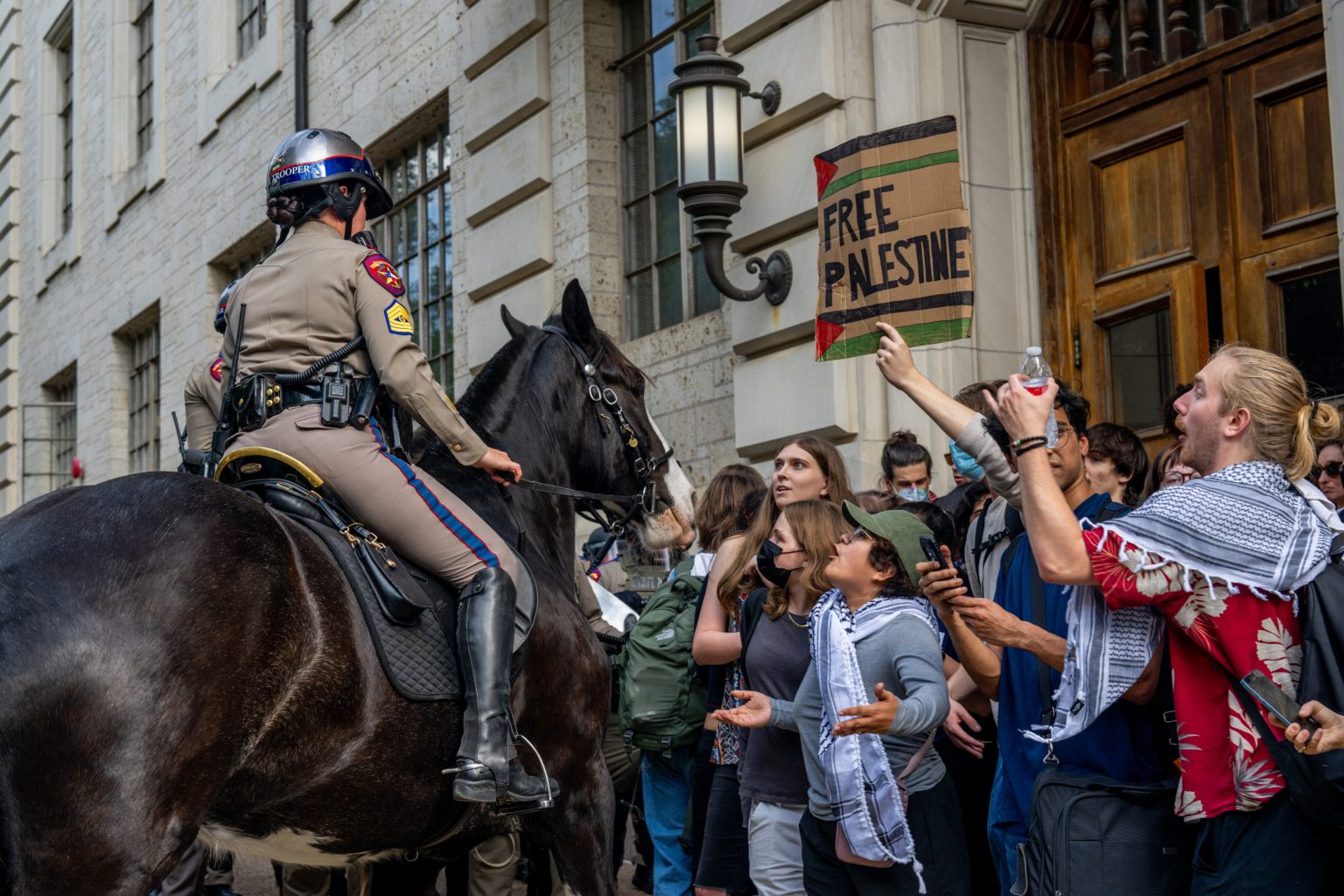On Wednesday, pro-Palestinian protests took place at the University of Southern California in Los Angeles and the University of Texas at Austin, leading to at least 127 arrests. Students at both campuses had set up camps to protest against the Israeli military operation in Gaza, prompting police intervention. The Los Angeles Police Department reported 93 arrests for trespassing with no injuries, while the Texas Department of Public Safety reported 34 arrests on the UT Austin campus related to the protests.
The protests at both universities were met with a strong response from law enforcement, with arrests being made to disperse the crowds. The Texas Department of Public Safety emphasized that those engaging in hate-filled or antisemitic protests will not be tolerated in the state of Texas. Governor Greg Abbott expressed support for expelling students who participate in such activities at public colleges or universities in the state. The events at USC and UT Austin highlight the tensions surrounding the Israeli-Palestinian conflict, as well as the challenges of balancing free speech rights with maintaining public order on university campuses.
The arrests made during the pro-Palestinian protests at USC and UT Austin raised concerns about the limits of free speech and the right to protest on college campuses. While students have the right to demonstrate and express their views, authorities must also ensure public safety and prevent disruptions to campus activities. Addressing antisemitism and hate speech is essential in maintaining an inclusive and respectful environment for all students, regardless of their political beliefs.
As the situation at USC and UT Austin continues to develop, it is important to consider the broader implications of these protests in the context of the Israeli-Palestinian conflict. Protests on college campuses can serve as important platforms for raising awareness about social justice issues, but they must be conducted in a peaceful and law-abiding manner. University administrators, law enforcement agencies, and political leaders must work together to address the underlying causes of these protests and strive for constructive dialogue and understanding among students, faculty, and the community.
In response to the arrests at USC and UT Austin, there will likely be ongoing discussions about the role of law enforcement in handling protests on college campuses, as well as the boundaries of permissible speech in public spaces. Balancing security concerns with the protection of civil liberties is a complex task that requires careful consideration and collaboration between all stakeholders. Moving forward, it will be important to learn from these events and work towards promoting a culture of tolerance, respect, and open dialogue within the university community.
Overall, the pro-Palestinian protests at USC and UT Austin underscore the challenges of navigating political disagreements and social justice issues in university settings. While students have the right to express their views and engage in activism, it is crucial to channel these energies into constructive and productive dialogue that promotes understanding and mutual respect. By fostering a culture of inclusivity and empathy, universities can create spaces where diverse perspectives are welcomed and where conflicts can be addressed through peaceful means. As the events at USC and UT Austin demonstrate, managing protests on college campuses requires a delicate balance between upholding free speech rights and ensuring public safety for all members of the community.


